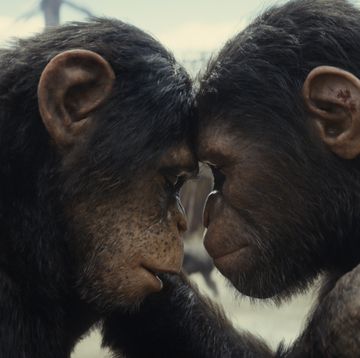Star Wars: The Last Jedi is Luke Skywalker's movie. It's his swan song, in which he confronts his own faith, past, and demons. And for fans who last saw Luke as that bright-eyed hero who had saved the galaxy, it's hard to see him as a self exiled hermit who has failed in training his star pupil, Ben Solo.
In the movie, flashbacks show Luke sensing Solo's draw toward the dark side and going to his sleeping chamber with the intention to kill the young student. Some have complained that this decision is out of character for Luke, that he would never consider killing an unarmed innocent kid. But one Reddit user has brought forth a compelling analysis of Luke's character that defends this plot point:
I don't think it's that far beyond how Luke is presented in the OT. Initially he's all for killing Vader to avenge his aunt and uncle, Obi-Wan, and his father. When Vader reveals he's Luke's father, it allows him to look beyond the "monster in a mask" and see the human underneath. Even Obi-Wan and Yoda urged him to face and strike Vader down in order to become a Jedi Knight, but Luke's instincts told him different.
For me, that's the key: Luke has always trusted his instincts. He did so to destroy the Death Star, and does again to face Vader on Bespin rather than complete his training -- that one was a mistake in the short term, but it allowed him to realise the truth and ultimately redeem Vader. In ROTJ, Obi-Wan even tells him: "Your insight serves you well."
Luke has always trusted his instincts. He trusted them when he rushed off to join Obi-Wan until he saw the good in his father.
Luke's insight into the truth of Vader helps return Anakin to the light and defeats the Emperor. His insight has served him well at every major decision. Then comes Ben; his own nephew, except when Luke looks at him through the Force—using his feelings, his insight—he sees only darkness. Now, Luke's trusted instincts are telling him to strike Ben down for the good of the future, in the same way his damaging trip to Bespin was ultimately a good thing, and to ignore the advice of his Jedi Masters and reach out to Vader was a good thing. Luke, of course, realises his mistake; that his instincts have been clouded, but by then it's too late. I'd argue that Luke in the flashback does what Luke has always done as a hero of the Rebellion and a Jedi Knight: he trusts his instincts. And they led him wrong, hence retreating into exile unable to trust his insight any more and in an emotional crisis.
That's a pretty objective analysis of Luke's character. And perhaps fans are hesitant to accept Luke's actions because they've known him as the infallible hero for 40 years. Any good character has flaws, though, even one as iconic as Luke Skywalker. In The Last Jedi, Luke corrects his mistake and once again saves the good guys.
Matt Miller is a Brooklyn-based culture/lifestyle writer and music critic whose work has appeared in Esquire, Forbes, The Denver Post, and documentaries.













